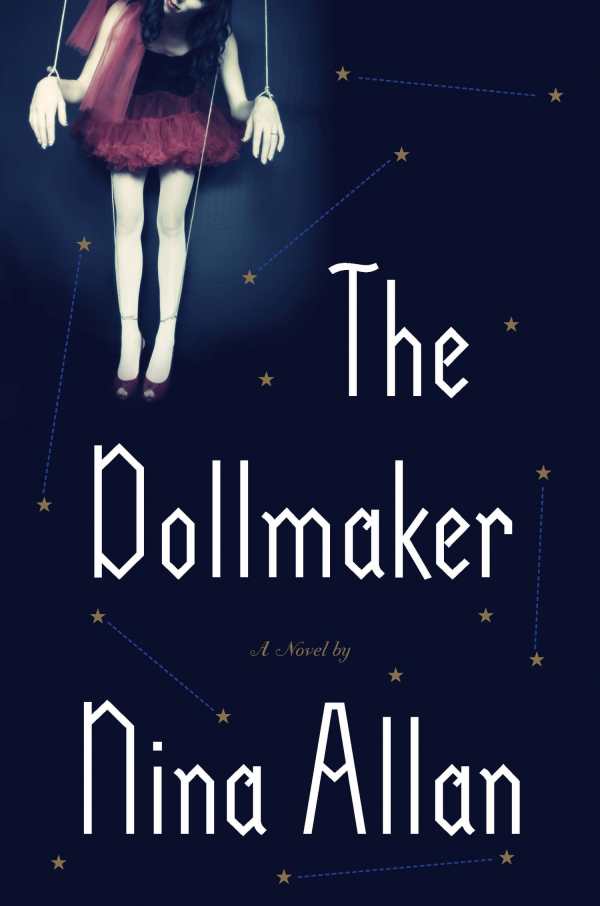The Dollmaker
Nina Allan’s exquisite and strange The Dollmaker is a postmodern fairy tale, both whimsical and aching in its appeal.
Andrew felt lost among his contemporaries until he discovered that he had a gift for fashioning discarded and forgotten antique dolls into more haunting versions of themselves. His hobgobliny creations—with their scarred faces, reconstructed sockets, and peculiar charms—are sought after and prized.
But as his dolls are sent off into the adoring homes of children and adults who find appeal in their imperfections, Andrew remains lonely and ill-fit within society. Most people see and interact with him only as a dwarf. Yearning for a real connection, he responds to an ad in a collector’s magazine for a pen pal and falls in quick, long-distance love with the correspondent, Bramber.
Bramber, who’s been secreted away from society for years, has her own reasons for being enchanted by dolls, fragile but undying as they are. She also introduces Andrew to the works of Ewa Chaplin, a fellow dollmaker and a Holocaust survivor whose short stories are intriguing in their familiarity.
Every careful step the story takes is magic. When Andrew elects to surprise Bramber with a visit, his affection for the old-fashioned makes the trip meandering, utilizing trains and leisurely stops in old English towns. Though he believes that he’s out to rescue Bramber, these drawn-out movements give him time to question what his true expectations are.
As he draws connections between Chaplin’s stories, his own history, and what he knows of Bramber from her letters, Andrew comes to realize that he knows Bramber more as a treasure than as a woman. It’s a startling, lonesome realization that permeates the ifs and unknowns of the book’s last pages, but that does not impede the book’s enchantment in the least.
Whether read as a romance, a fairy tale, a lament, or combinations of the three: The Dollmaker is a bewitching story.
Reviewed by
Michelle Anne Schingler
Disclosure: This article is not an endorsement, but a review. The publisher of this book provided free copies of the book to have their book reviewed by a professional reviewer. No fee was paid by the publisher for this review. Foreword Reviews only recommends books that we love. Foreword Magazine, Inc. is disclosing this in accordance with the Federal Trade Commission’s 16 CFR, Part 255.

